Erstellt am: 18. 6. 2014 - 15:37 Uhr
A Fresh Wind in the European Parliament?
“We believe we have a great opportunity to shape the future of Europe,” says Eva Paunova, the youngest Member of European Parliament (MEP) in the conservative EPP bloc ”but we also have a great responsibility to do this in a sustainable way. We need to give future generations the tools and possibilities to determine their own future.”
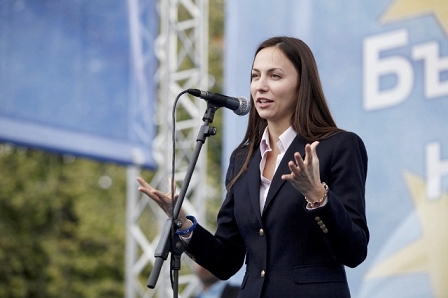
Eva Paunova
The 28-year old Bulgarian is a member of EU40, a new club in the European Parliament for MEPs who are under the age of 40. She says she wants to work for a Europe “where people preserve their identities, but call themselves European” and that this group is “a new voice” in parliament that is less constrained by party affiliation, less obsessed with national issues and more interested in consensus decision-making that is geared to find solutions rather than divisions.
“We’re young people from different places, and different parties with different ideas gather together to find common ground.”
The idea, says Paunova, is to form a cross-party group that will “stand united” when generational issues, such as youth unemployment or our dysfunctional education system, are discussed in the European Parliament. Paunova says she appreciates the “wisdom and experience” of the older MEPs, but she and her colleagues are more naturally in touch with the concerns of their own generation on major issues.
A strong voice for youth would be necessary re-balancing act in Parliament. The issues that affect the lives of the younger half of the European population are among the most pressing facing the 28-nation bloc. Just 91 politicians under the age of 40 gained seats in the 751-seat Parliament. Indeed Paunova points out that the average age of MEPs is currently 55 years old.
Part of this problem is superficial. Voters complain of “grey” and “old” Brussels. While competence should be the main qualification of any MEP, image does count if younger voters are to feel their concerns are being represented. So the first priority of the EU40 will be to reengage a younger European electorate that is largely fearful of the future and who don’t really trust that the MEPs are working in their interests.
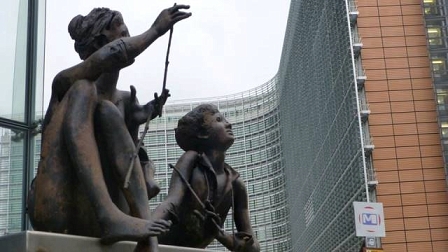
Chris Cummins
The EU, the world’s most complex democratic experiment, is in serious trouble right now. It’s a project on the defensive – an ideal seen, in the words of Britain’s right-wing Daily Mail as “remote, aloof and totally unrepresentative.”
The most positive interpretation of results of the recent EP elections that I heard about the recent of a Brussels insider was that “it wasn’t as bad as we had feared.” It’s true that the pro-European forces still dominate the 751-seat Parliament but millions of voters showed their antagonism to the European Union.
In Britain, Denmark and France parties openly antagonist to European integration actually won the EU-elections. The EU has to react.
But will it?
Arrogant and Remote EU?
As if to confirm that the sceptics were correct in their claims that the EU holds the views of ordinary European voters in contempt, we were informed after the election that our votes hadn’t really counted for much after all.
During the “This Time It Is Different” campaign being led to believe that we're directly voting for the new “boss of Europe.” The EU parliamentary political grouping with the most votes would apparently choose the next EU Commission President. The conservative bloc won, their lead candidate is Jean-Claude Juncker. Now it seems the member states can veto that decision.
The complications and nuances of the actual political process was undercommunicated, presumably for fear the turnout would be even lower than the eventual dismal 43%. Is it a surprise that voters think the EU is arrogant and remote?
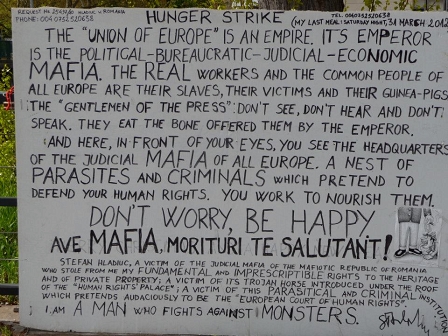
Chris Cummins
Time to Answer the Tough Questions
Indeed the European Parliament has been previously described by the Süddeutsche Zeitung as a “playground for the friends of Europe.” In 5 years’ time when Europeans are told our votes really matter, Brussels can expect even more raised eyebrows.
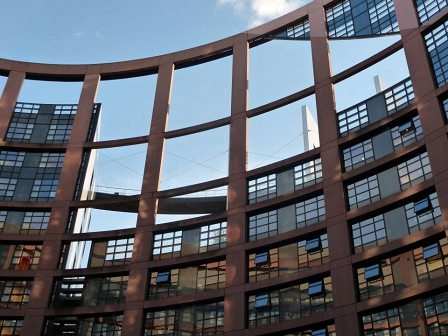
chris cummins
So the new generation of MEPs can no longer blame dissatisfaction on unfair tabloids and voter delusion. The young pro-European MEPs will have to ask themselves hard and uncomfortable questions about why voters of all generations find the EU too intrusive and too bureaucratic. They will have to convince young voters about the value of freedom-of-movement laws. It’s not enough to accuse those who are wary of the laws of xenophobia. Voters need to be convinced not insulted.
In short, they will have to invite the euro-sceptics to take part in a dialogue and defeat them in argument rather than complacently dismissing them as ignorant.
But instead the EU40 group has refused entry to the new batch of under-40 anti-European politicians. Why? By voting for anti-establishment parties, the voters of Europe sent a clear message that they fed up with the cosy establishment – the ‘same old’ way of doing EU politics.
"We are new"
The EU establishment has been accused of arrogance and complacency and yet the new generation shuts out the non-mainstream parties. Haven’t they learned the lessons of the older generation?
“Many people are fed up with the ‘same old’ way of doing politics, but we are not part of the ‘same old’ system. We are new; bring fresh ideas and injecting energy into politics.”
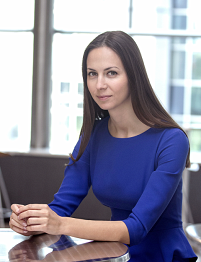
eva paunova
She says that the EU40 doesn’t need to change to adapt to the influx of new Eurosceptic politicians but rather the sceptics should adapt and “see why the European Union has been a very successful project.”
If this new crop of MEPs is going to convince of that they are going to have to come up with a clearer vision of what Europe should (and shouldn’t be) and then communicate it in a much better way than the older generation has ever managed.
They need to communicate in a way that actually means something to European voters who are currently fearful of the future and who don’t really trust that the EU is working in their interests. And they need to do it without adopting that overly familiar patronising way that a lot of older candidates slipped into during the pre-election television debates.
Same Old Big Business Influence?
But will things be really different? One key concern of eurosceptics is that the work of the European Parliament is more heavily influenced by the concerns of big business than it is by the voters that give it its legitimacy. The homepage of the EU40 lists as its “partners” the multinational food company Nestle and two oil companies: Statoil and BP. The search for a new clean energy policy and a seed variety are key concerns of Europeans. How can we believe that this new vision of Europe will place our concerns over the interests of big business? I am still eagerly awaiting an answer from EU40 to that essential question.
-----------------------------------------------------------------
The answer from Adam Mouchtar, Managing Director of EU40
"EU40 is not a political party. We are a network and platform for young MEPs from across the political spectrum. Our legal status is that of a Belgian NGO. We have a code of conduct, which can be found on our website and are a member of the transparency registry of the EU.
Any NGO in the world needs means to finance itself and stay operational. We can only strengthen young MEPs, if we can finance an office, team, etc. and we are thankful that firms like Statoil, BP and Nestle are willing to support this cause. In return we show their logo on our website. Otherwise no return is provided.
They do not influence our policy on energy, because we do not have a policy on energy. We solely offer a platform for an open debate on energy to take place. The debate can take any course, as neutral actors from across the political aisle participate in the debate."


